This is the second of Baroness Northover’s blogs from Tanzania, where the theme of her visit is ‘leave no one behind’. In her previous blog she focused on disability, and today on women and girls.
We have come up to Mphangwe, a village of around 3000 people in the Dodoma region, in the centre of Tanzania. It is dusty and (mostly) dry – a noticeable change from humid Dar es Salaam. The sudden torrential rain takes me – but clearly not them – completely by surprise each time.
Today’s key event is a visit to a family planning outreach centre. DFID is currently supporting 2 suppliers – Marie Stopes Tanzania and Population Services International (PSI) – to deliver family planning services nationwide. The aim is to reach 1 million women.
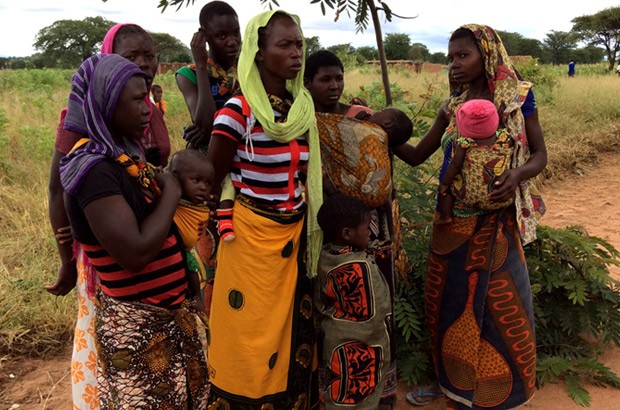
I was delighted to be accompanied here by Dr Susan Musaka, country director for PSI, with her medical degree from Uganda, then public health at the London School of Hygiene and Tropical Medicine, before an accountancy degree in Glasgow. So much better qualified than most of us, with the UK granted the huge privilege of helping to educate her. Long, long may this pattern continue.
And I was also delighted to hear that the UK government and the Bill & Melinda Gates Foundation’s London Summit on Family Planning in 2012 had acted as a great stimulus and huge help in trying to bring this absolutely key topic up the agenda in the African countries in which she worked. It makes such events worthwhile.
Family planning is indeed an absolutely vital service: the need and demand in Tanzania is huge. It is a health burden on women to have multiple pregnancies, as well as a burden in so many other ways. And as we all know, it is far easier to ensure that children are well-nourished and in school if families are smaller. It is also clear that development progress in Tanzania has been offset significantly by rapid population growth.
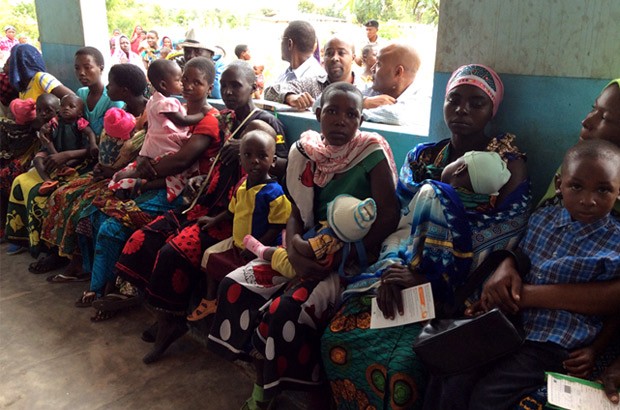
Choice is key. If they wish to be pregnant on a frequent basis from their mid-teens until their mid-forties, that should of course be their choice. But too often it is not a woman’s choice to have multiple pregnancies. 40% of women in Tanzania are married before they are 18, often far younger, curtailing their education and life chances. Frequent pregnancies are the norm. You often see young women carrying 2 infants, barely separated by a year in age, with other siblings following behind.
But the long queue at the family planning clinic, mostly of young women, but also a number who look worn and older, all of them carrying infants, bears testimony to the demand for family planning services.
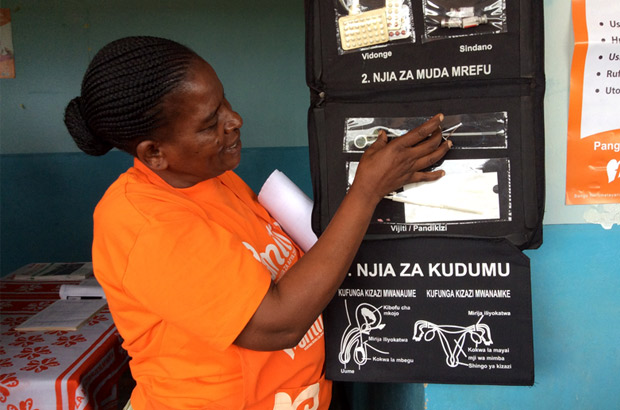
When we arrive at the clinic, an education session has just begun. There’s a brief talk on the importance of family planning, the benefits it can bring. There are some questions on whether there are any concerns around the use of family planning methods, followed by a demonstration about which types of contraception – short- and long-term – are available. The session also touches on other health topics, such as nutrition and sanitation.
Then the women are registered, before having a one-to-one consultation. The nurse will discuss what options are available and help the woman decide which is best suited to her situation. Most of the women are in their twenties, but many already have 5 or 6 children. Often they want a long-term method to avoid any further pregnancies that could impact on the quality of their existing children’s lives and lead to health complications for them.
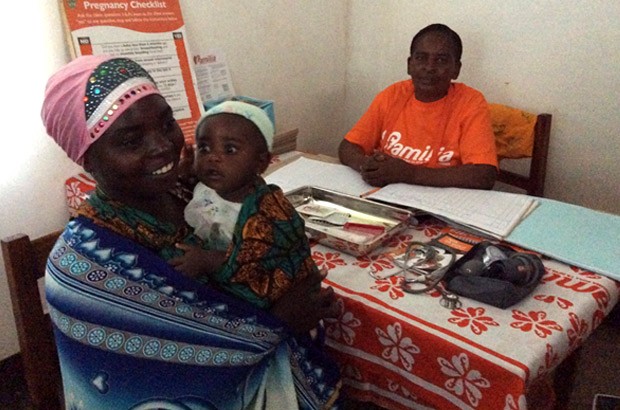
It is a huge challenge to enable women here to have the access so many of them are seeking. There is a lack of supplies, and poor infrastructure and capacity. Dr Musaka tells me that no sooner than a health worker is trained to give advice then she (usually it is a she) may be transferred to another task in another district. There are also cultural or religious barriers to take-up. As a result, it is estimated that at least 25% of demand remains unmet.
Male attitudes towards using contraception are a major challenge to meeting demand, Prudence Masako, the Head of Reproductive Health at PSI, tells me. PSI tries to address this by working with community leaders to run education sessions for men. If they are able to make the men of the community understand the importance of family planning, more women will access services. This doesn’t always work, though. Many women choose to have an injection, because this way their husbands are not aware that they have started using contraception. But only last week, when a woman who had an implant at the centre returned home, her husband cut the implant out of her arm on learning what she had done.
Nonetheless, Prudence is generally positive about the outlook for the centre. Education will continue to have an impact, she feels, and they have turned a corner.
We walk along a track from the centre to visit Mphangwe’s main water point. Girls in their dusty blue school uniforms are lining up to fill buckets. They are laughing, carefree – still children – though I note that it is only the girls who are detailed to carry the water back to their school. Statistically, many could be married with children of their own in just a few years.
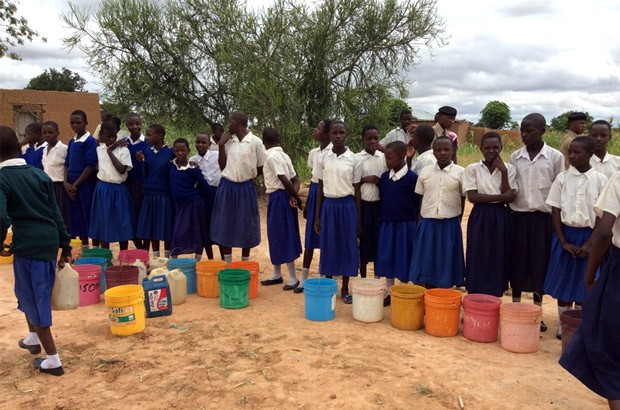
I reflect on the work of the centre in trying to change public attitudes towards family planning. When these girls reach marriageable age, will they be able to choose the timing of their pregnancies, in order that they – like their brothers – can finish school? I hope so.
It is time for a change in mindset. We need everyone to recognise that family planning is as a vital a service to communities as is water. And it is through programmes like the one DFID is funding that we will get there – so that one day, all women will have choice and control over their own bodies and lives.
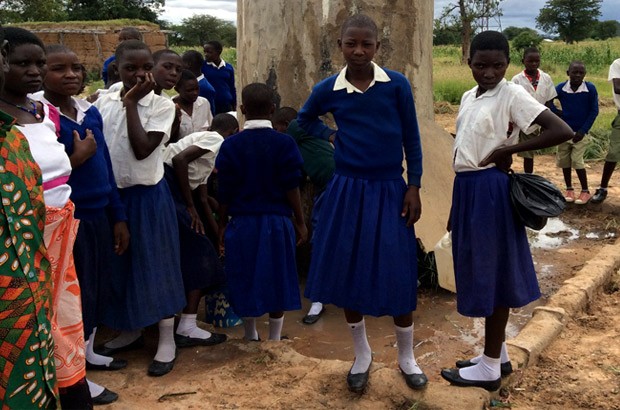
Sign up for email updates from this blog, or follow Lindsay on Twitter.

Recent Comments